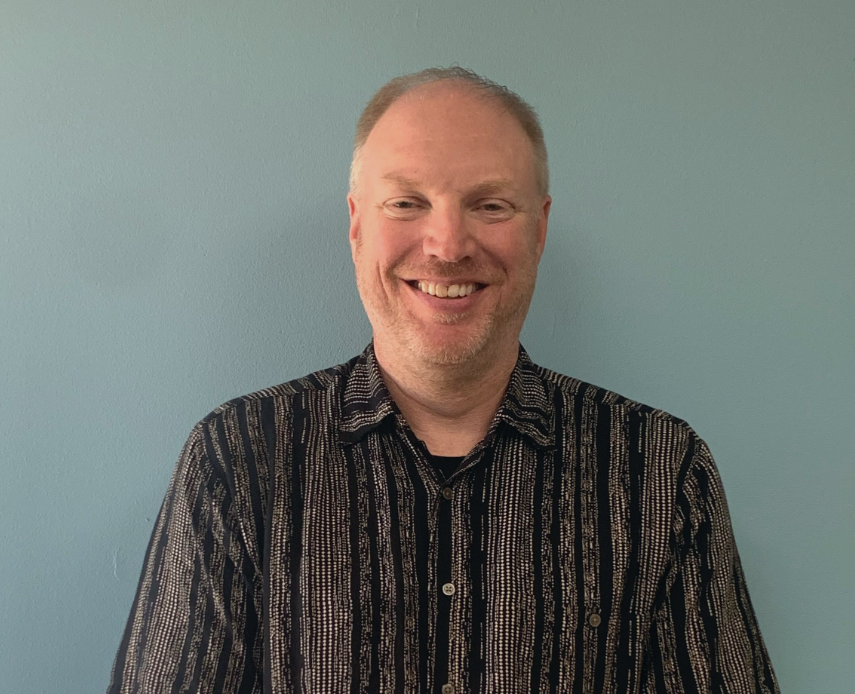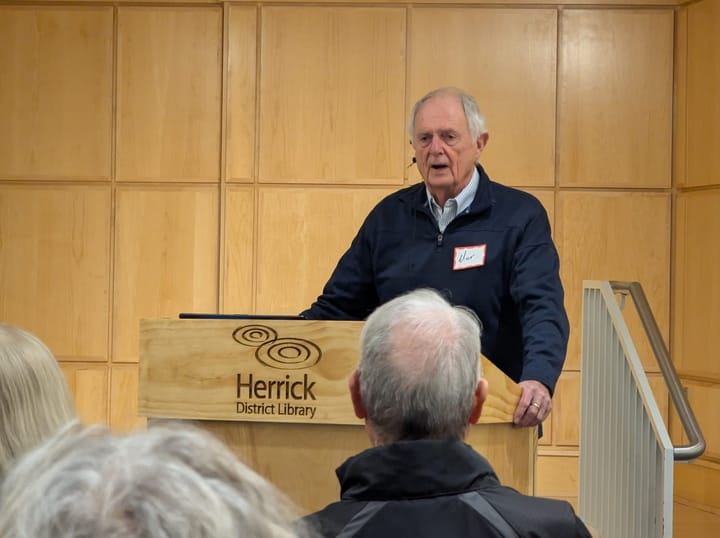Community Foundation awards $145K in grants to support county mental health services
CFHZ recently committed $145,000 in grants to support these nonprofits as they increase access to and availability of mental health services, particularly for individuals affected by the current lack of care providers.

The Community Foundation of the Holland/Zeeland Area (CFHZ) is dedicated to building a thriving community by directing resources toward key areas of need through its proactive grant program.
Increasing access to and availability of mental health resources has emerged as a top priority, based on local data and input from nonprofit partners — particularly for individuals facing significant barriers to care.
CFHZ recently committed $145,000 in grants to support these nonprofits as they increase access to and availability of mental health services, particularly for individuals affected by the current lack of care providers.
According to the Ottawa County Community Health Needs Assessment (CHNA):
• 34.5% of Ottawa County adults are considered to have mild to severe psychological distress, almost twice the rate (19.8%) it was in 2020.
• Among Ottawa County youth, 31.4% report having depression, and this rate has been steadily increasing since 2011.
As demand for mental health care services increase, a shortage of behavioral health providers has created long waitlists and limited timely access to services — particularly for individuals from low-income households, those who are uninsured or underinsured, and non-English speaking individuals. Organizations that provide low- to no-cost services to these populations are competing with private practices as they attempt to attract and retain clinicians.
According to the CFHZ, local mental health care organizations have implemented innovative ideas and best practices to help meet the need.
Here is more information on the organizations that received funds:
Beacon of Hope
Open the Gates Program
$60,000 over two years
To help Beacon of Hope address mental health service delays — often averaging six to 12 weeks — by expanding its counseling internship program.
The organization will hire a full-time clinical supervisor to oversee up to 12 interns, potentially adding 5,050 counseling sessions annually and serving 350 clients. This model delivers $850,000 in counseling services yearly at a cost of $65,000, equating to just $190 per client for up to 15 sessions. Partnerships with institutions like Aquinas College ensure sustainability, training new counselors and creating a local workforce pipeline.

Beacon of Hope, a trusted community resource, exemplifies a cost-effective, innovative approach to reducing wait times and improving mental health care access.
Kyle L. Thompson EdD LPC, executive director, said, “People in need cannot wait long to receive competent care that is affordable. One of our most impactful testimonies came from a child we serve. This little boy simply said, ‘My mom says I am doing much better since I started counselingand she is thankful we do not have to pay for it, because she is not sure how we would do that.’ This grant has contributed to that boy's story and many more similar to his to come. Thank you for recognizing the impact no fee counseling services have in the Holland/Zeeland area.”
City on a Hill Ministries Health Clinic
Behavioral Health Integration Expansion
$55,000 over two years
To help deliver comprehensive mental health care for individuals from low-income households, including those who are uninsured or underinsured. For 18 years, City on a Hill Health Clinic (COAHHC) has delivered free healthcare for Ottawa and Allegan County residents.
With depression and anxiety among the top diagnoses, COAHHC has seen a 40% rise in mental health patients since 2016. Most of their clients earn at or below 150% of the Federal Poverty Level. In response to growing demand for mental health services, COAHHC plans to hire two full-time licensed social workers, including Spanish-speaking counselors, a part-time case manager, and expand its internship program from five to eight students.

Facility upgrades and outreach initiatives will further increase access to services. This is the second time CFHZ has invested in COAHHC’s behavioral health integration program. An initial grant in 2022 helped expand counselor hours, growing from 29 to 82 clients served — and demonstrated COAHHC’s trusted relationships with patients and commitment to meeting community needs.
Christine Plummer, RN, MSN, health clinic director said, “Receiving this grant for mental health services will be transformative for City on a Hill Health Clinic, allowing us to expand access to care, provide vital resources, and bring hope to individuals and families in our community. This investment in mental health will ripple through the lives we touch, fostering healing, resilience, and a brighter future for all."
Community Mental Health of Ottawa County
Crisis Intervention Team Expansion
$30,000
To help Community Mental Health of Ottawa County (CMHOC) expand its Crisis Intervention Team (CIT) program, which has trained over 100 first responders since its 2021 launch to address mental health crises by recognizing behavioral health conditions, de-escalating behavioral health crises, and connecting individuals and families to community services and support.
The program pairs master’s-level clinicians with law enforcement to respond to behavioral health-related 911 calls, averaging 78 co-responses monthly. Currently, clinicians must ride with officers, limiting geographic coverage. The expansion will secure vehicles for clinicians to respond independently, which removes the restrictions created by jurisdictional and assignment-related boundaries.

CFHZ’s grant will fund a vehicle for Southern Ottawa County. That part of the county sees 8,500-12,800 annual 911 calls appropriate for clinician intervention due to mental health concerns, which often overlap with homelessness, disturbing the peace, and substance-use-related calls.
CIT has significantly reduced arrests, emergency department visits, and injuries—less than 1% of contacts result in harm to any party present. Current program metrics provide evidence that CIT’s response to crisis in the community reduces the burden on the criminal justice system and emergency departments, keeps first responders and community members safer, and results in more referrals to appropriate treatment and services.
Tim Piers, CIT Supervisor, said, “The Crisis Intervention Team program has shown great success in providing direct, safe, and compassionate care to those in crisis, linking them to the treatment andservices they need. With the support of CFHZ and our partner agencies, we are expanding to make this critical service available county wide."
Yadah V. Ramirez, Director of Community Impact at CFHZ, said, “The growing number of community members experiencing mental health challenges, and the volume of data showing a critical shortage of care providers, prompted the Foundation to make this a priority area of investment for our proactive grant program. We are deeply appreciative of the services local nonprofit partners are offering to support residents' mental health needs. We believe these grants will create meaningful progress in making care more accessible.”
More information about grantmaking is available at cfhz.org/nonprofits.
— Submitted by the CFHZ. Questions about CFHZ’s grantmaking strategy can be directed to Yadah V. Ramirez at yramirez@cfhz.org. Click here to submit an article.



